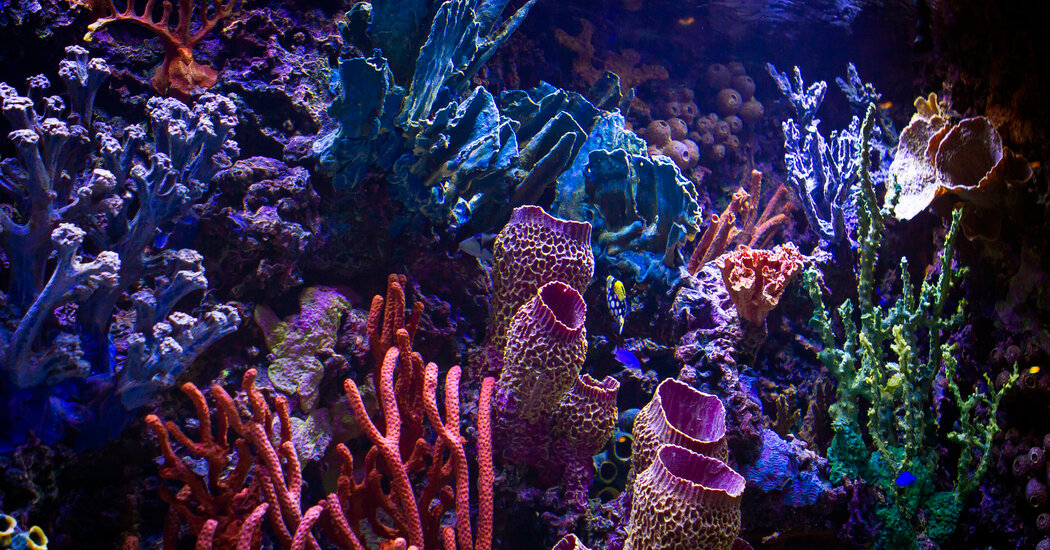
The boom in high-end tank demand has coincided with a shortage in key aquarium building materials like acrylic, said Mr. Tiemens. Grocery stores, restaurants, salons and many other businesses around the globe were using acrylic in massive quantities for sneeze guards during the height of the Covid crisis. Mr. Calabrese said the worst of the delays have passed, but supplies in general are still backed up. The time it takes to build an aquarium has doubled, from roughly three months to six months, he said.
Sourcing the fish has also become a challenge. Some remote tropical islands have cut off or have limited trade, said Mr. Calabrese, making some tropical fish difficult to come by. Yellow tangs, the brightly colored saltwater aquarium staple native to Hawaii, have shot up in price and gotten much harder to find, he said. (They now can cost more than $500 each, up from less than $100.) More aquaculture farms are cropping up to sustainably grow some popular fish, but not every species can be bred.
Keith Poliakoff, a lawyer in Fort Lauderdale, Fla., recently built a 550-gallon tank into a den area of his home — an upgrade from the 150-gallon tank in his previous house. His saltwater aquarium has live coral, which Mr. Poliakoff said is painstaking and expensive to grow and maintain, but also rewarding. (He purchases coral grown in captivity.) Mr. Poliakoff splices together small fragments, which eventually grow together to form larger coral — a process that can take years. He selected fish that are reef-safe, like clown fish, which don’t eat or hinder the coral growth.
“To be able to have a tank where you can learn how to grow corals and make it thrive and succeed in a protected environment,” he said, “it helps others appreciate the beauty of coral and sea life.”
The tank, designed by SeaVisions, is in his den and makes up the wall behind a bar area.
For those looking to install or build an aquarium into a new home, the process ideally starts early. Mr. Tiemens, of Infinity, recently tagged along with a couple and their broker on their house hunt in Los Angeles.
The couple wanted a house with a living room that could accommodate a 1,500-gallon tank. They ended up finding a house with an ideal layout for the tank, with a bedroom and bathroom they have since converted into aquarium filtration operations and a separate quarantine tank. He and his team used a forklift to get the aquarium into the house and then built the custom cabinetry around it.
Putting a high-end tank in a high-rise brings added complexity. Justin Muir, the owner and principal designer at New York-based City Aquarium, said additional structural supports, like steel plates to reinforce the floors underneath, are a must. But that can add tens of thousands of dollars to the cost. Condo and co-op board rules often dictate how large a client can go. Still, he said it’s possible to build a pretty large aquarium — 300 to 500 gallons, or six to eight feet in length — in many taller buildings.






